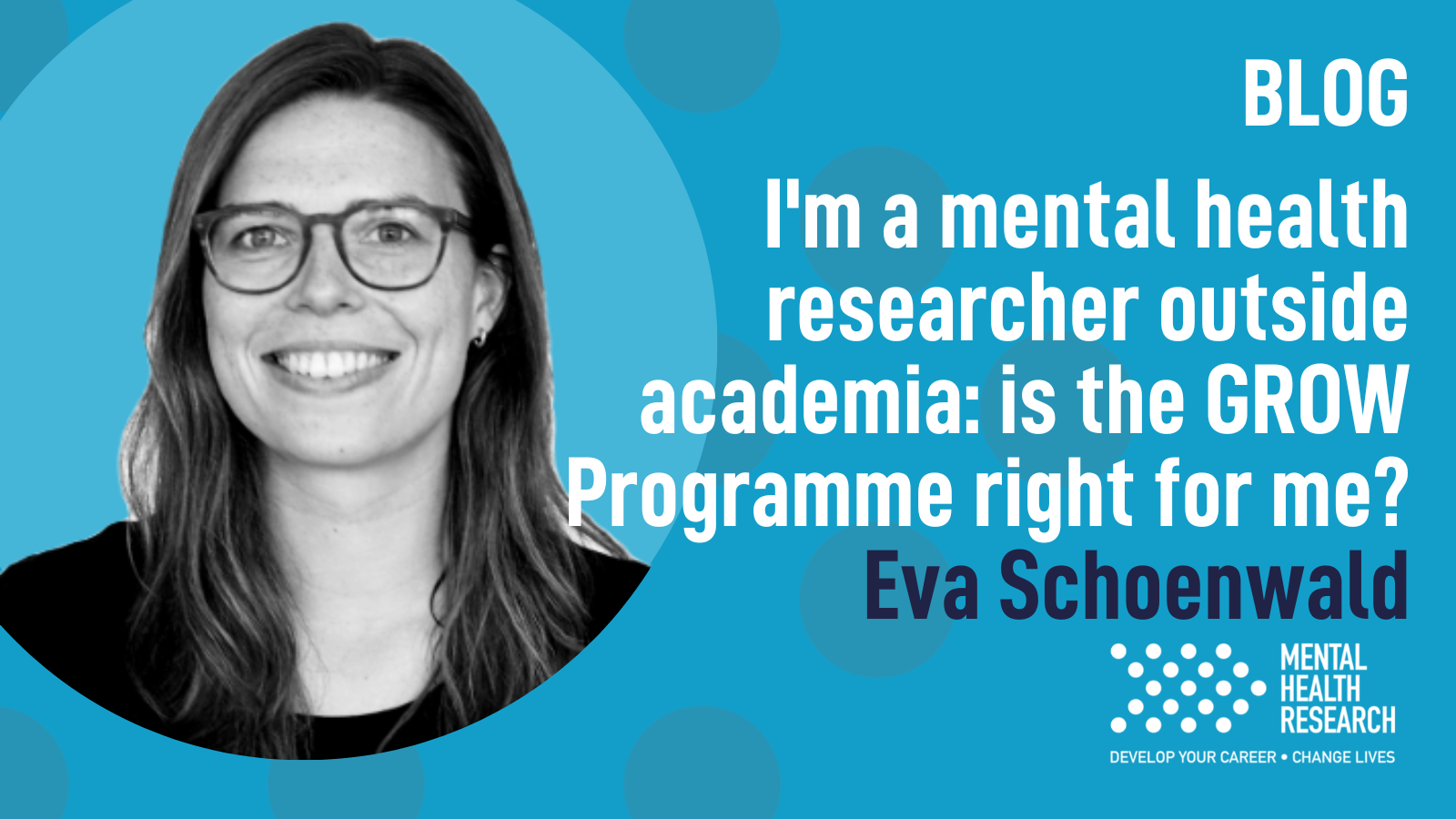
DID YOU KNOW: you don't have to be a university researcher to apply to the GROW Programme!
GROW 2022 alumnus Eva Schoenwald wasn't sure what to expect when joining the programme as a senior quantitative researcher at the government-funded research centre What Works for Children's Social Care. In this blog, Eva shares how she found herself connecting with a collaborative, dynamic network of other early career researchers and discusses what mental health researchers from all kinds of institutions can gain from the GROW Researcher Development Programme.
My time with the GROW Programme has recently drawn to a close, and wow – time has flown by! I wasn’t quite sure what to expect at the start, but the programme has more than exceeded my expectations.
I’m a senior researcher at What Works for Children’s Social Care, where I work on impact evaluations in the children’s social care and education space. Children’s mental health forms part of our current research priorities, and one of my research projects focuses on improving the service provision for children and young people in inpatient services. Being quite new to mental health research, the GROW Programme appealed to me as a way to connect with other early career mental health researchers, to learn and grow together, and to better understand the mental health research world.
Sharing interests and knowledge between mental health research institutions
As a researcher not based in an academic institution but in a government-funded research centre, GROW has really allowed me to connect with other researchers from academic institutions and find people with similar research interests outside of my research team and area. There were quite a few participants who also worked on the intersection between social care and mental health, and it was great to learn more about their projects and how they related to mine. Hearing about other participants’ research areas also inspired new research ideas going forward in areas linked to children’s social care that I previously had not thought about.
Reflecting together on mental health research
Hearing from experts in different fields and having time to share and reflect with fellow GROW members has been incredibly meaningful. I’ve been able to take a step back and think about my own priorities in mental health research and in my career more widely.
Developing your research career with GROW
I’d recommend anyone working in mental health research to apply for GROW, even if you are not based at an academic institution. My work differs from academia mainly in terms of how we secure funding, the process of deciding on research projects to take forward, and managing many competing priorities that are not directly related to my research, as my role involves project management and providing strategic guidance to the team. GROW is a great opportunity if you’re thinking about moving into academia, want to stay connected with like-minded researchers, or want to learn more about different areas or new methods of research. The coaching sessions also provide a great opportunity to reflect on your individual needs as a mental health researcher and how you want to progress your research going forward.
Eva Schoenwald was a member of the 2022 GROW programme cohort.
